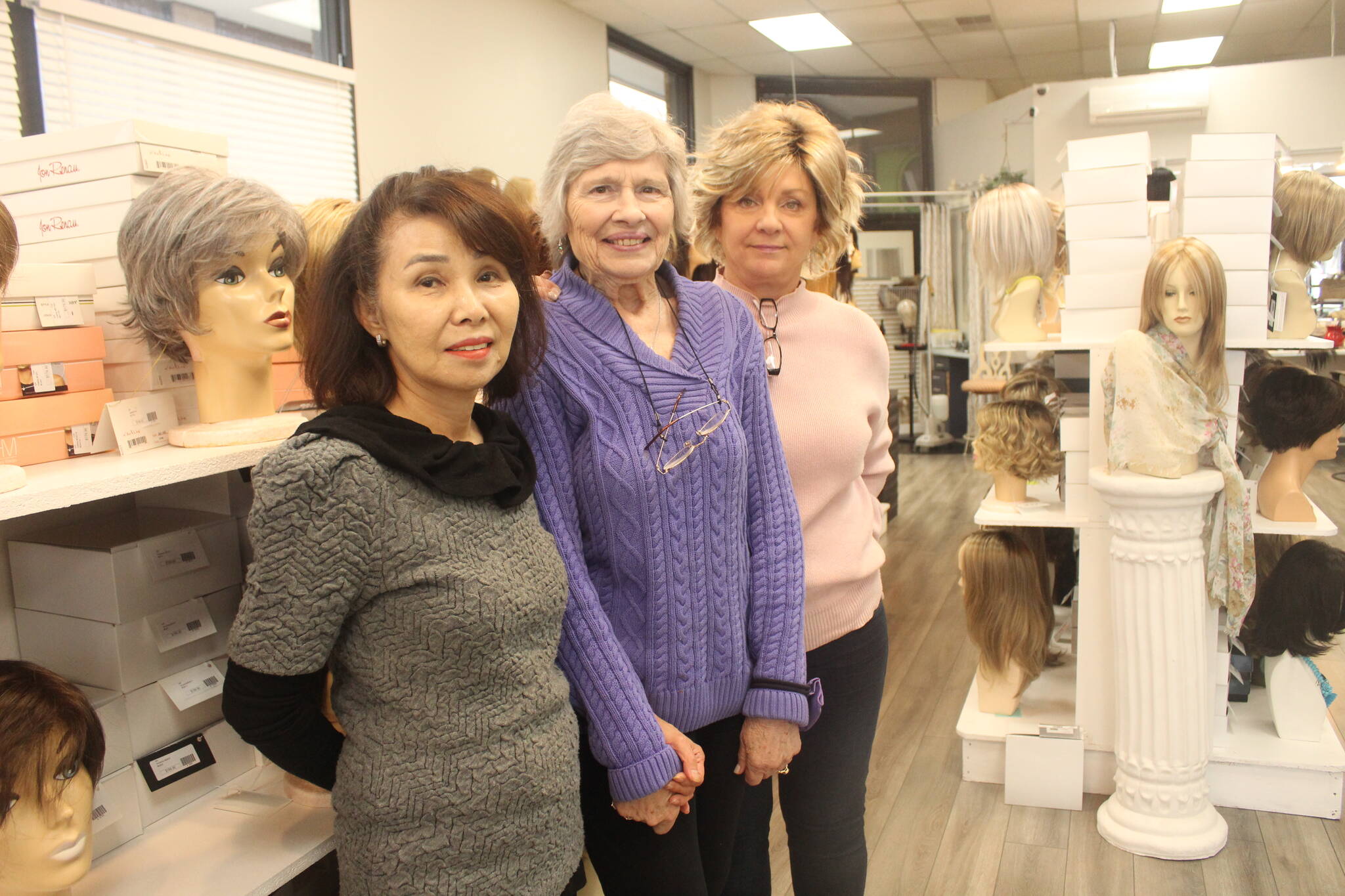In a strip mall near the most popular shopping spots in Federal Way is a small business with “Wigs Master Care” on the sign.
Though this helps identify what lies inside for anyone driving past, the shop is actually called Master Hair Care, and it’s one of the most recommended places in the area for finding the right everyday wig, especially for those going through chemotherapy.
Recently, there was a post on a Facebook group called “Washington Breast Cancer Support” where one woman talked about her appreciation for Master Hair Care and its staff, calling the place amazing and saying, “I cannot say enough good things about them.” Others agreed wholeheartedly in the comments, with one woman writing that “they really know how to make a difficult time OK.”
In business for 35 years, Master Hair Care has been owned by June Paikwith for the last 20 years. She employs two stylists and eight staffers. Janis Hanson has been a staffer for five years and has firsthand knowledge of just how important it can be for people in need of purchased hair.
“My background is just my hair started thinning and I was trying all the shampoos and all the tricks and nothing worked. So I just went into Scottsdale, Arizona, and went into a wig shop for the first time and took to it like a duck to water. I love wigs,” said Hanson, who really knows her stuff when it comes to finding the right hairpiece or wig for a client.
While many clients come in to the shop looking for pieces to help with various illnesses, hair thinning, alopecia or transitioning, Hanson estimates that about 40% of the clients at Master Hair Care have either recently been given a cancer diagnosis or are currently going through chemotherapy.
“I see a lot of women that are coming in before they lose their hair,” said Hanson. “I love that because I get to see what color they have and how they like it styled.”
According to Hanson, this is especially important because many clients prefer any wigs they purchase to be as close to their natural hair as possible: “They want to look like themselves and feel like themselves,” she said.
When a potential client walks into the shop, they are led to salon chairs in the back or to a private room, where they consult with staffers on exactly what they want, be it just a “topper” to help cover some thinning on top or a full head of hair to help clients feel like themselves.
“Sometimes they are depressed and their hair means a lot to them,” said Paik.
From there, the staffers will bring examples to be matched to the client’s current hair color, or as close as possible, and work with them on style and length. If there’s a color that works, but the length is a little too long, a stylist in the shop will cut and style the piece until it’s just right. The shop even offers hair shaving for free for clients who have been diagnosed with cancer.
“We just guide them step-by-step and sometimes clients are crying and they don’t expect to look natural in the wigs,” Paik said.
Most of the wigs in the shop — which range from straight to wavy in texture — are made from synthetic and not human hair. That’s because synthetic offers more variety in colors, and the wigs are not as expensive and do not require as much styling before each wear.
“With a cancer client, you have fatigue, you have the side effects from the chemo drugs. And so if they could just put one on and it has a memory style, then it’s so much easier for them and they’re good to go,” said Hanson. The shop does carry human hair wigs, and if there’s something that isn’t available in store, Paik makes sure to have it in as soon as possible.
“We don’t really recommend it, unless they will insist that they want to have human hair, then that’s fine,” said Paik, who will special order any customized hair or items that aren’t currently in stock.
Working closely with clients on what they want from their new hair is a major priority, and staffers sometimes spend up to two or three hours working with a client to find just what they need.
Along with wigs and topper hair pieces, Master Hair Care also offers services for men’s hair systems, costume wigs, children’s wigs and creating cranial hair prosthesis systems that are sometimes covered by medical insurance.


